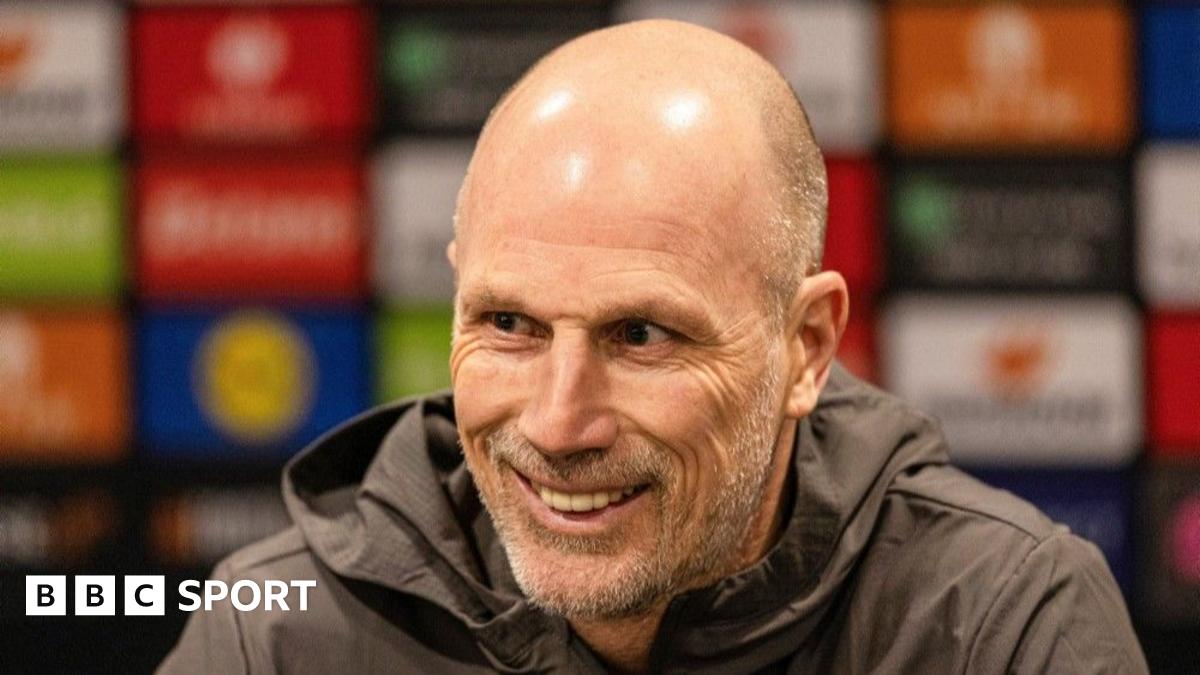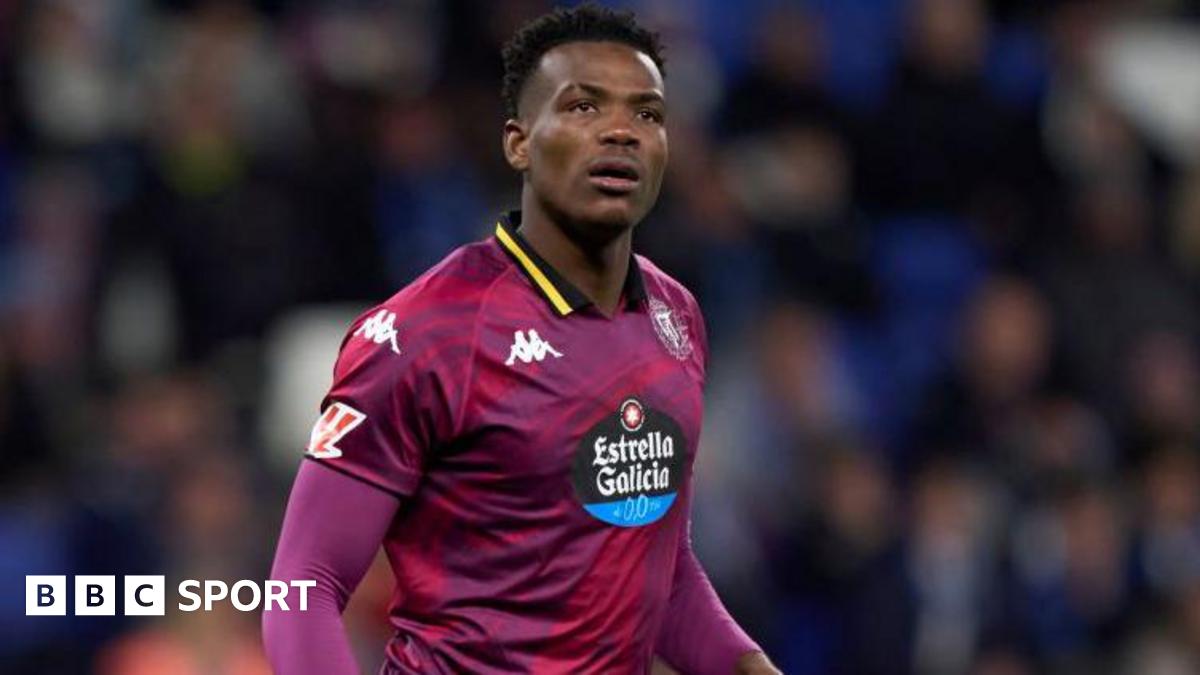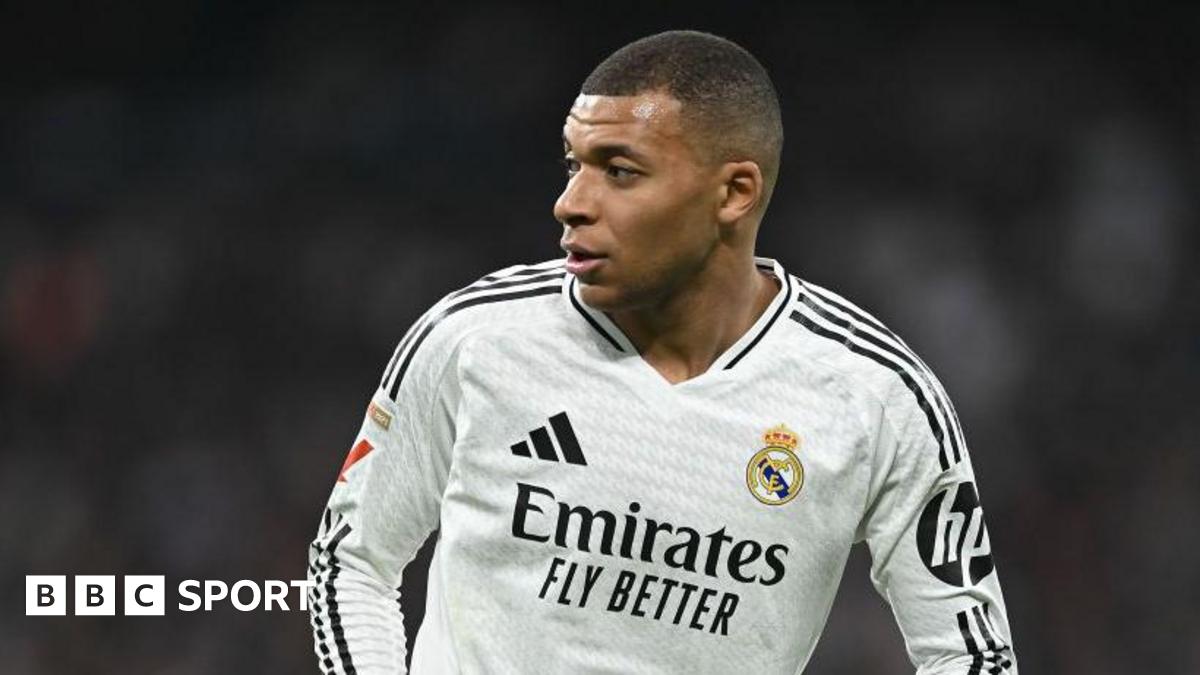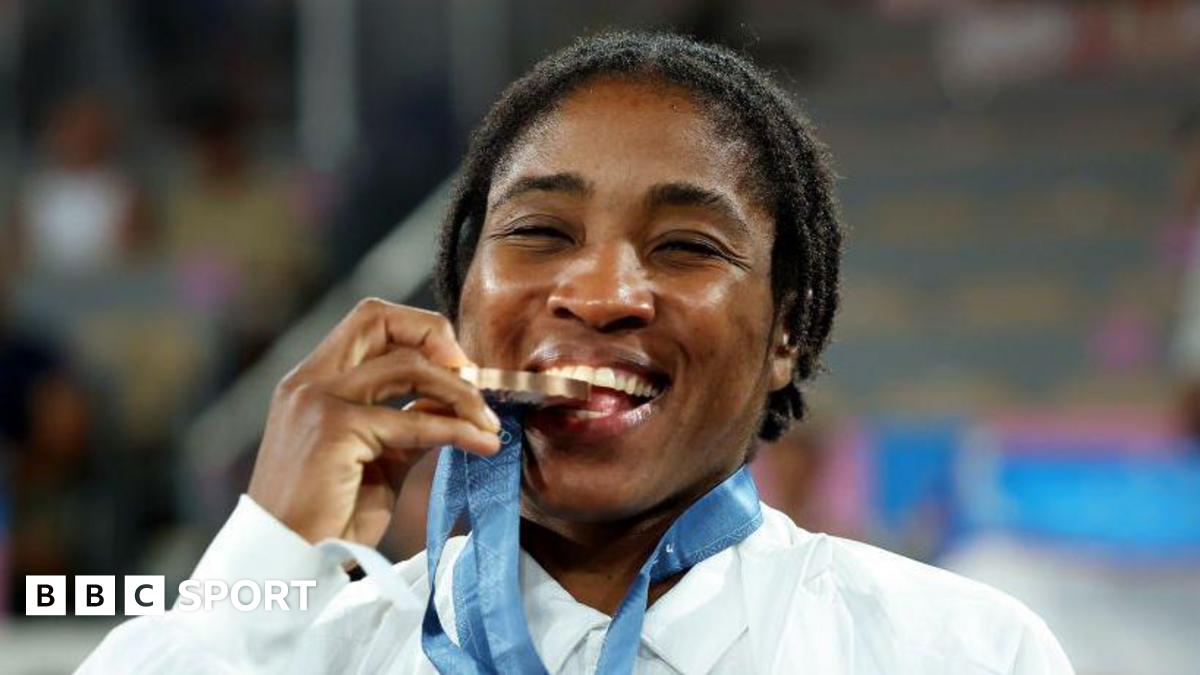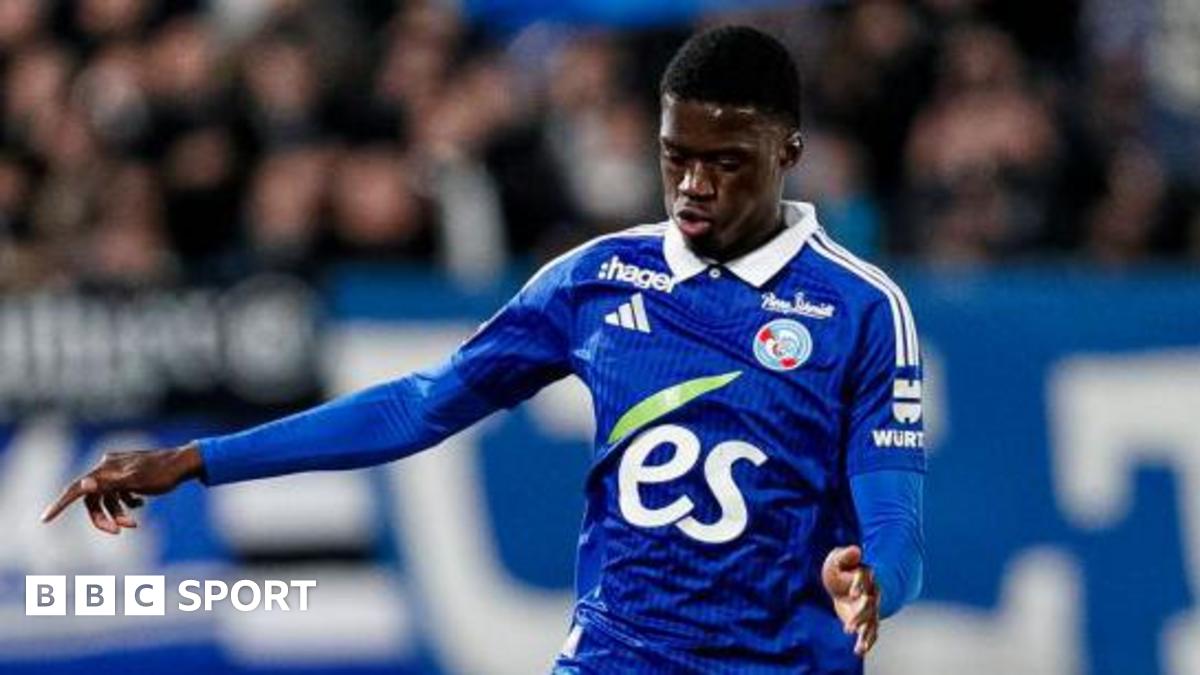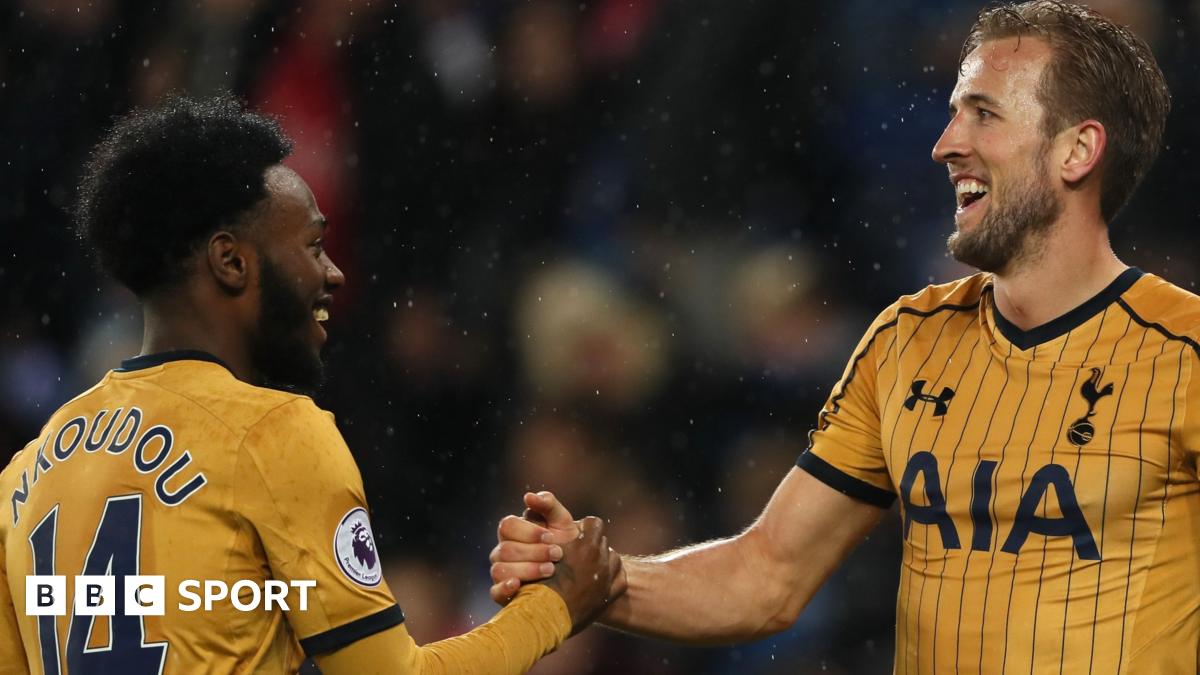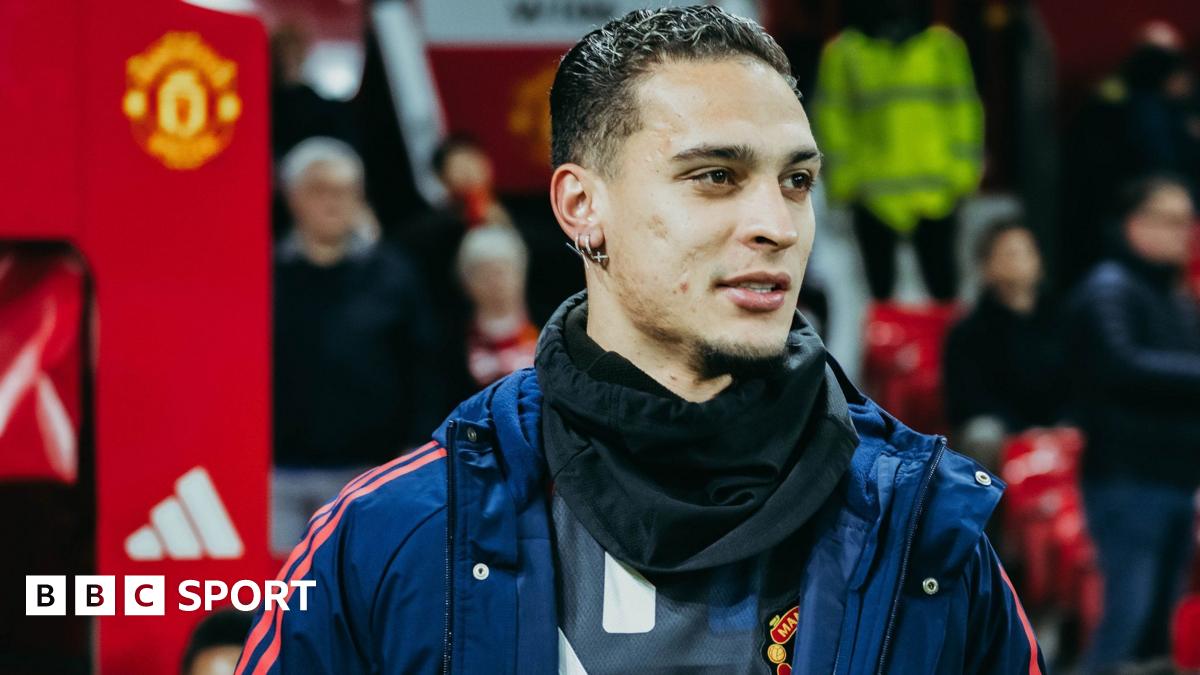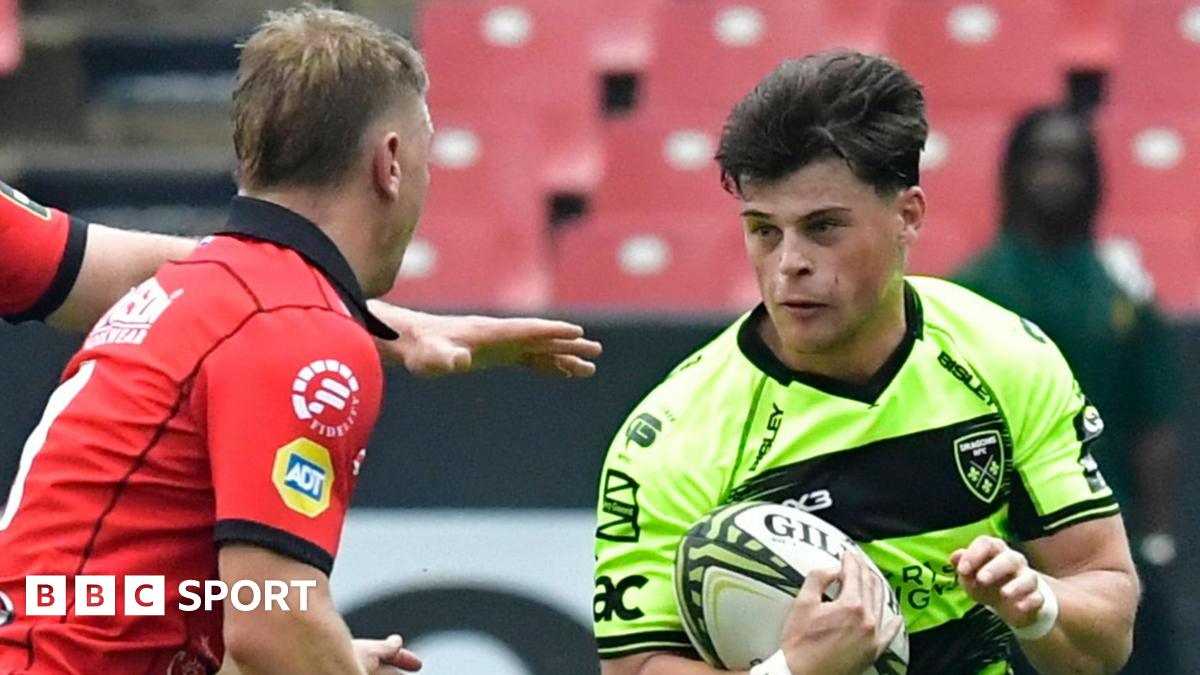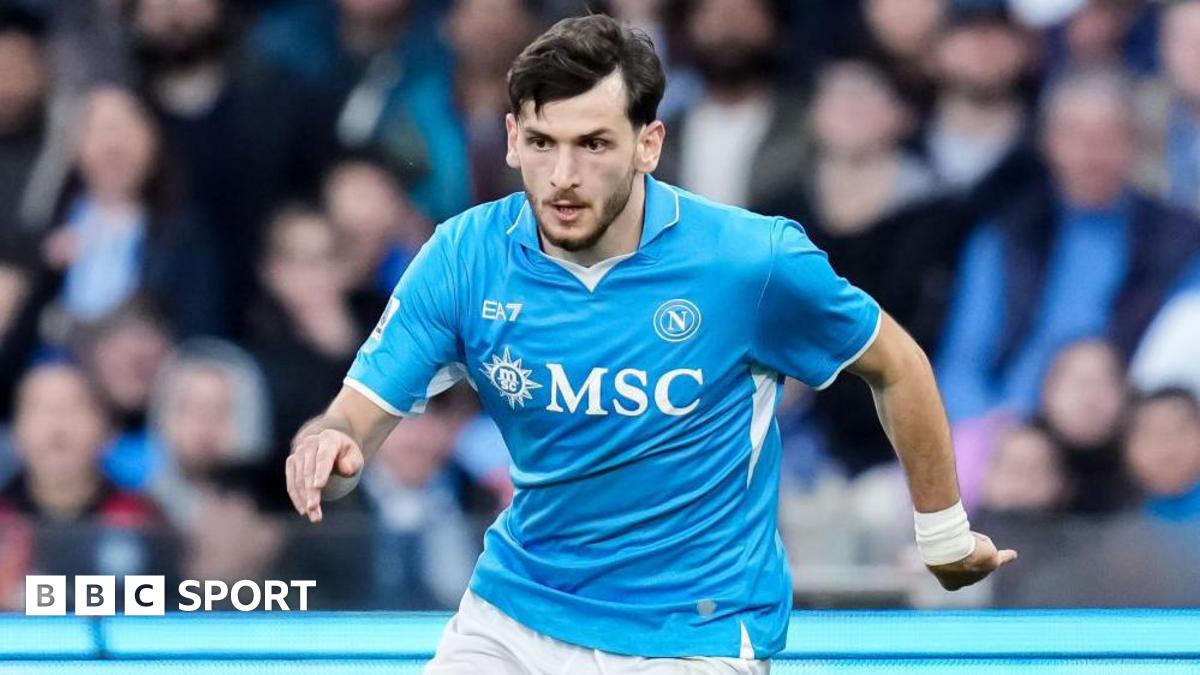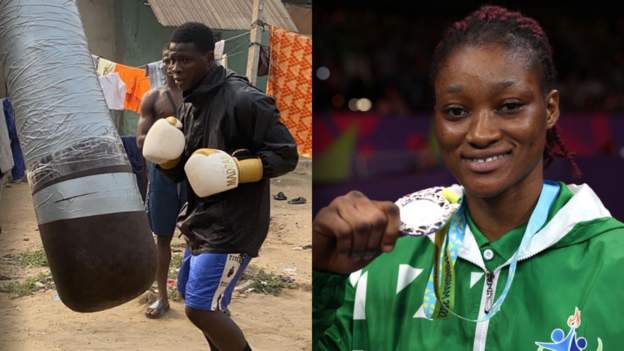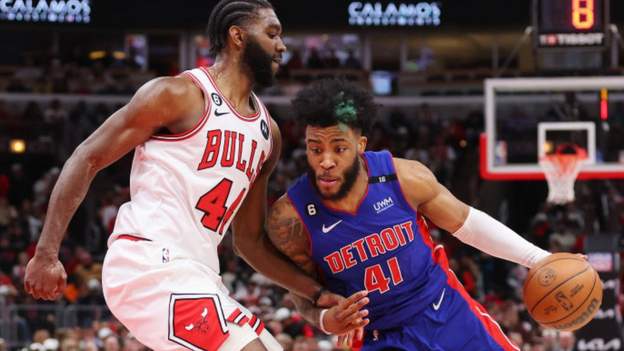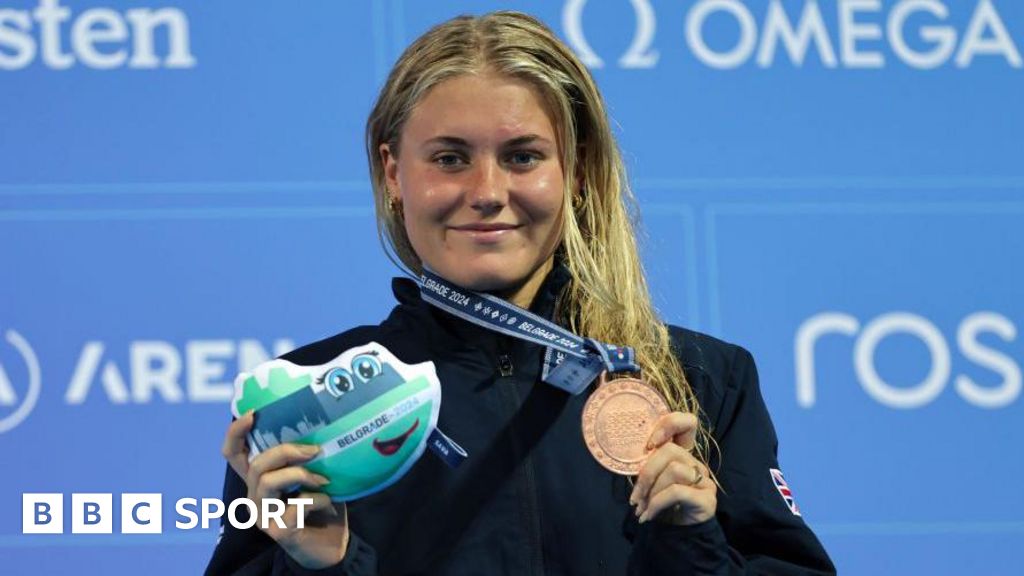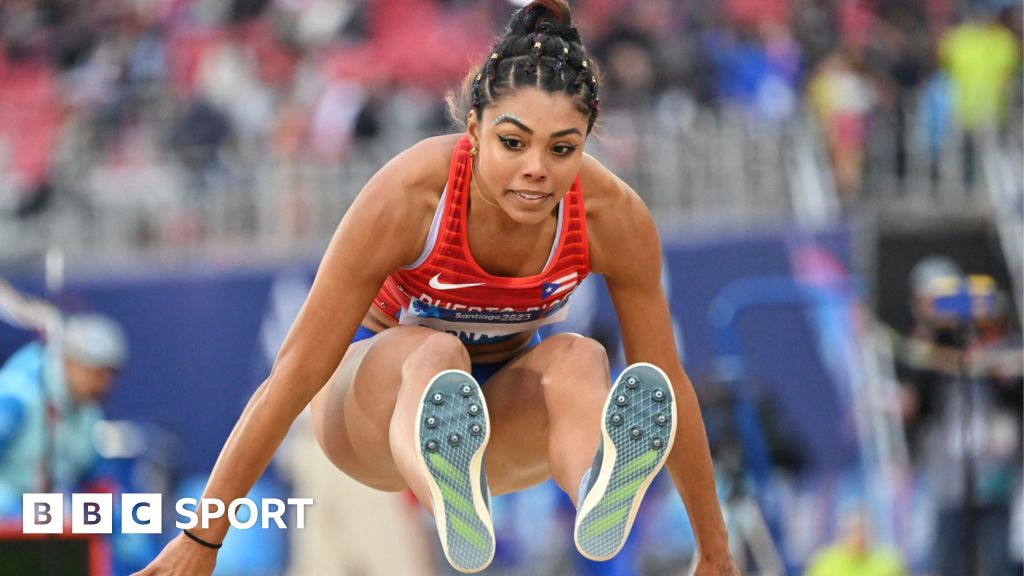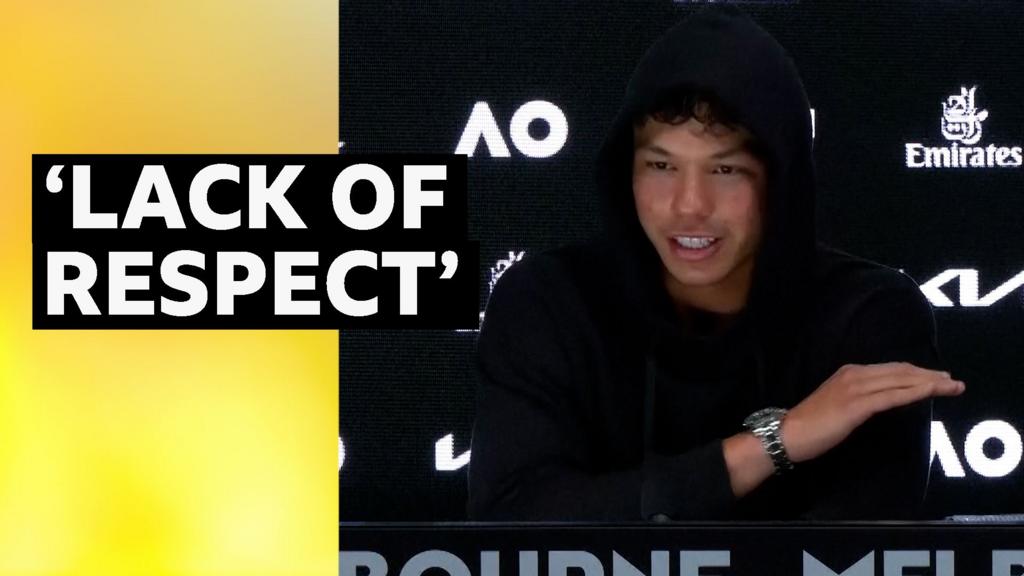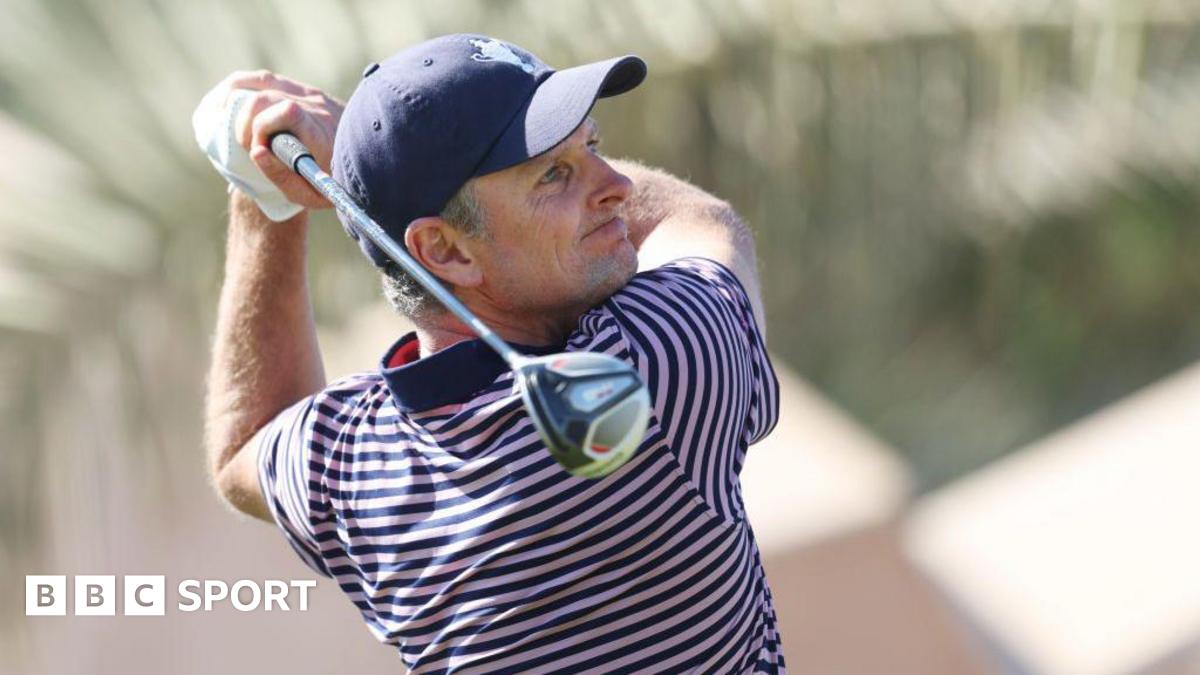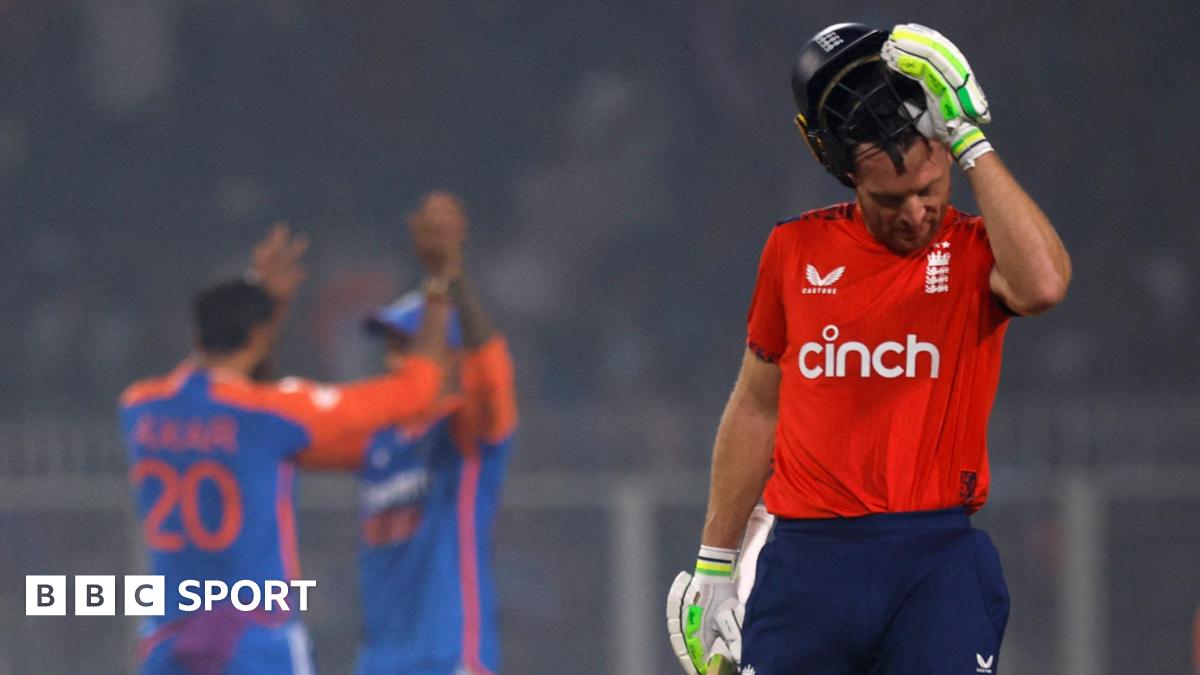“Making it in boxing is tough, so you have to take your opportunities.”
So says Nigerian Elizabeth Oshoba. The 23-year-old is a promising featherweight prospect currently fighting out of Bristol.
Originally from Ogun State in Western Nigeria, she won a silver medal at the 2022 Commonwealth games in Birmingham where she lost in the final to Ireland’s Michaela Walsh, then made the decision to turn professional.
What makes Oshoba’s case so unusual is that she chose to do that not in her home country, but in western England, supported by promotional company Neilson Boxing.
She is joined in this venture by Oluwatosin Kejawa, a 21-year-old super middleweight from Lagos. A former two-time Nigerian amateur champion, Kejawa shares Oshoba’s outlook.
“In Africa it is very hard to build a career as a boxer. There are no good promoters. It’s impossible to find sponsorship, but in the UK, things are different,” he says.
That’s not to say their move has been straightforward. The shift from living and training in Nigeria, to the Gloucestershire-Somerset border has involved a lot of adjustment.
“The weather is a big issue and of course the food,” Kejawa laughs.
“But the training facilities and the potential to develop are so much better.”
From punching sandbags to Commonwealth silver
Interested in many sports but especially football and table tennis, Oshoba grew up as a villager in a rural area. She admits she was reluctant at first to try boxing.
“When I was around 12, my brother had the idea for me to box, but I wasn’t keen,” she remembers.
“I didn’t know much about boxing and didn’t even know girls could do it. It seemed very risky. I was scared about getting hit in the face.”
In the end, Oshoba caved in, went to the local gym, and fell in love with the sport despite her initial misgivings. Fear was rapidly replaced with excitement.
“There were other female boxers there, which encouraged me, and I improved quickly,” she says.
“Although the gym was very basic. It had just one heavy bag, for example, which was filled with sand.”
From that starting point, Oshoba went on to have around 60 amateur fights, winning all but three, culminating in her Commonwealth medal.
By contrast, Kejawa began his journey with greater enthusiasm. He grew up in Bariga, a poor district of Lagos, where he was fascinated with combat sports from a young age.
“As a kid I especially loved wrestling” he explains. “WWE, all that stuff.
“I used to enjoy kung fu movies as well, Bruce Lee, Jackie Chan and all those guys. Then when I was around seven years old, a boxing coach moved into the compound where I lived.
“It was so lucky. He began training kids right there and I joined in. It all took off fast.
“I had my first competitive fight at eight years old and I’ve been boxing ever since.”
By the time he was in his teens, Kejawa had established himself as one of Nigeria’s top amateur fighters.
As many young people do, he began posting updates and videos to social media, not knowing that it would lead to something unexpected.
‘We believe in ourselves, but it can be lonely here’
Both boxers found their lives changed when they were approached online by Somerset-based businessman Sean Murray.
Having set up a fledgling sports management company, Murray scoured Instagram for inspiration, where he came upon videos of Oshoba and Kejawa in action.
“The first time I spoke to Tosin on a video call, he explained how much he needed to get out of Nigeria to further his career,” Murray recalls.
“I could see the talent there, so that’s what started the ball rolling.”
Murray is aware that this represents something of an unusual move. He financially supports Oshoba and Kejawa with the hope they can become stars in the future.
While it is common for away corner fighters to travel from abroad, it is less common for a boxer to set up home so far away from their own base.
As covered on previous editions of Small Hall Spotlight, the way small hall boxing is financed means early career boxers are generally under great pressure to sell tickets.
Those unable to sell enough, don’t fight. At this stage, Murray’s company is swallowing that expense.
“I knew it was going to be difficult financially, but I believe that as their careers develop, the eventual commercial rewards will come,” Murray says.
For it to pay off, Oshoba and Kejawa need success. In the first instance, that means aiming for Commonwealth pro titles.
Oshoba, currently 3-0 as a pro, will box an eliminator for that in her next bout on 10 March in Gloucester, while Kejawa, undefeated in seven fights, is closing in on the same target and fights on the same night.
Both believe that particular accolade is just the first step toward their ultimate destiny.
“We believe in ourselves, but it can be lonely here. All we need is for people to come out and support us,” Oshoba says.
“Reach out to us through our socials, say hello. That means a lot when you are far from home.”

